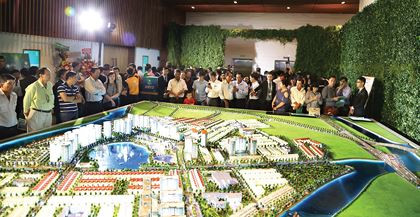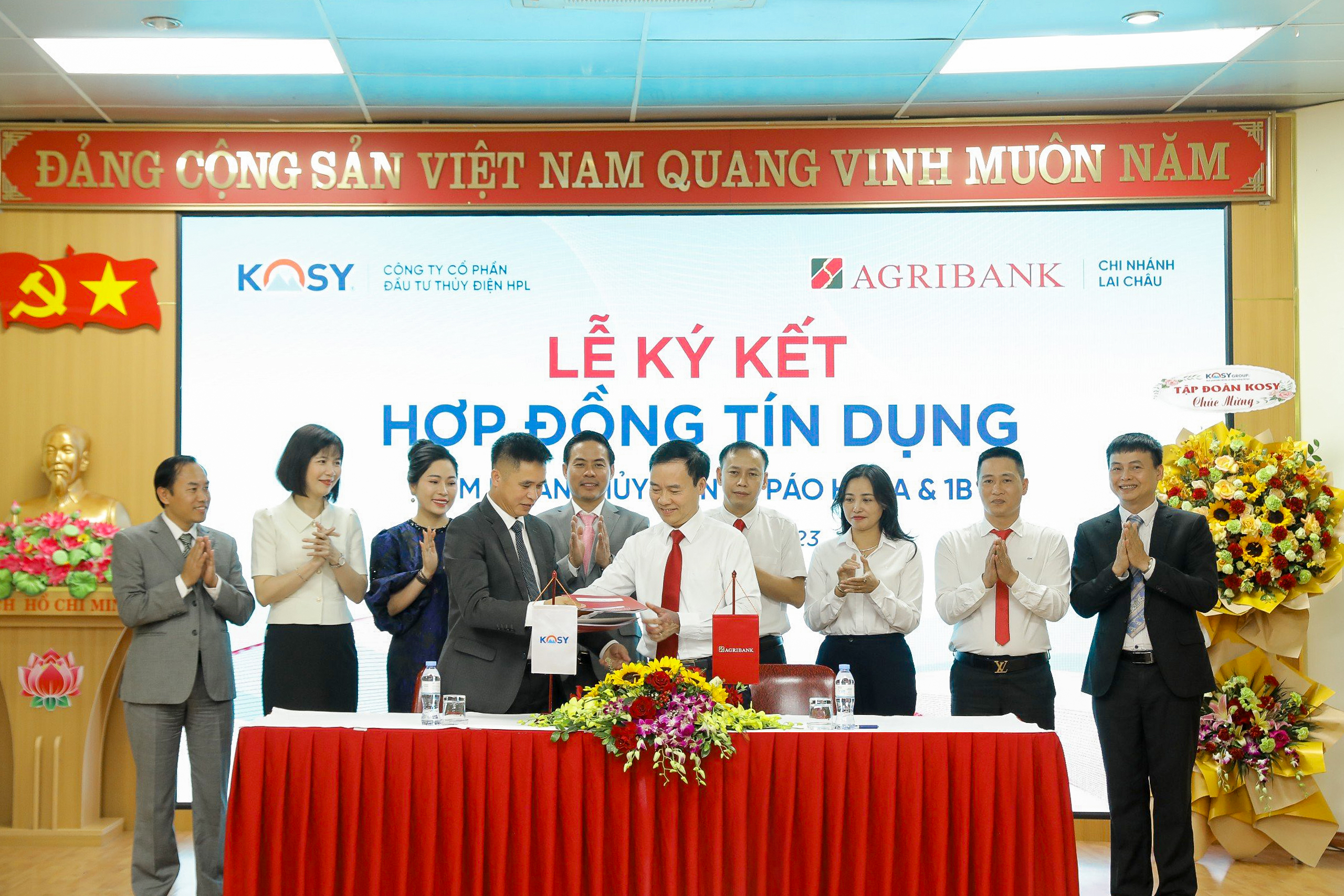REAL ESTATE CRISIS HAS NOT YET COME

At “Vietnam Real Estate Forum 2018”, prior to the proposed adjustments to policies for the real estate market, many experts expect the market to continue to develop well in all segments and these developments may last for at least another few years.
According to the State Bank of Vietnam, the total outstanding loans for investment and real estate business of Vietnam until 31 December 2017 is about 471 trillion dong (about 7.2% of total outstanding loans), increasing by 8.3% over the beginning of the year. Credit outstanding balance for real estate and construction business accounts for about 15.8% of total outstanding loans of the economy.

At the current real estate forum 2018, Mr. Nguyen Viet Cuong, Chairman of KOSY Group, said that the real estate market in Vietnam is showing signs of potential development. This is due to the prosperity of the economy and the speed of urbanization together with the young population which are putting significant pressure on the real estate market.
High real estate credit outstanding balance
In fact, there are many real estate projects which have been being implemented, especially in Hanoi with the source mainly coming from new districts such as Nam Tu Liem, Bac Tu Liem, Ha Dong, Long Bien, etc. In Ho Chi Minh city, Ho Chi Minh City, the source comes from district 9, district 2, Thu Duc district, etc.
According to JLL company, in the first quarter of 2018, the country has more than 151,000 complete apartments with the sales of nearly 9,000 units, decreasing by 5.3% on a quarterly basis. Approximately 10,600 apartments were sold in the primary market, increasing by 7.7% on a quarterly basis and 29.7% on a yearly basis.
Referring to the prospect in the coming time, JLL said that the market would welcome a new wave of projects coming to completion. It is expected that more than 47,000 units will be completed in the remaining three quarters of 2018.
According to Ms. Nguyen Hoai An, representative of CBRE company, in the first quarter of 2018, the market in Hanoi has a total of 8,800 apartments for sale under 39 projects. The sales in 2018 are expected to grow by about 9% compared to 2017, and reach the threshold of 28,000 apartments and concentrate in the mid-range segment.
Particularly, the market in Ho Chi Minh city, in the first quarter of 2018, received 9503 additional apartments, increasing by 11% on a quarterly basis and 79% over the same period last year.
According to Vietnam Association of Real Estate Brokers, in the first quarter of 2018, the total number of new transactions of cities and major localities in the country reached 25,750 transactions. Affordable and mid-range housing segments account for a large proportion in both the largest markets in the country including Ho Chi Minh City and Hanoi.
Real estate is a field of great demand for capital; however, many statistical reports show that there is up to 70% of investment capital in this field coming from bank loans (while the percentage is about 35% in other countries). And the total outstanding real estate loans in the last 2017 was 450,000 billion dong, accounting for 6.53% of outstanding loans to the economy.
This story is exposing the reality of our capital market which still has many limitations, creates capital structure which is inadequate and potentially risky, especially when the government introduces policies to limit the flow of money into real estate as currently.
“This story is exposing the reality of our capital market which still has many limitations, creates capital structure which is inadequate and potentially risky, especially when the government introduces policies to limit the flow of money into real estate as currently”, Mr. Cuong said.
Crisis has not yet come
In the current context of the real estate market, Mr. Tran Kim Chung, Deputy Director of the Central Institute for Economic Management (CIEM), said that so far there were 8 out of 10 signs that shake the real estate market.
Mr. Chung claimed that such 8 signs included: increased number of transactions; increased prices; increased number of works commenced; increased number of implementation areas; increased number of entities involved in the real estate market; increased project value scale; increased funds for real estate projects, etc.
“So there are only two remaining signs before we enter a crisis as the 2008-2009 crisis which is public investment and capital source for housing construction”, Mr. Chung said.
According to Mr. Chung, experience shows that the real estate market has a 10-year cyclical cycle: recovery – growth – recession – crisis.
“In fact, from 2011 to 2013, we were at the bottom of the crisis, in 2014, we recovered, and in 2015-2016-2017, we started to increase. In 2018, the market will increase even nothing is done; however, this is an extremely sensitive moment”, Mr. Chung said.
In another perspective, Mr. Nguyen Viet Cuong, Chairman of KOSY Group, is optimistic that the real estate market in Vietnam is showing signs of potential development from the prosperity of the economy.
However, businesses should choose market segments that match the strategy and strength of the business. For example, instead of pursuing high-end segments that are overwhelmed by supply, businesses can look for profit in the mid-range segment, meeting real demand and be encouraged by government incentives.
However, enterprises should choose the market segment in line with their strategies and strengths. For example, instead of pursuing high-end segments that are overwhelmed by supply and fiercely competing with foreign enterprises, enterprises can seek profits in mid-end segments that meet the real demand and are encouraged and favored by the government.

From the same perspective with Mr. Cuong, Mr. Pham Thanh Hung, Vice Chairman of CEN Group, said that the market was in good faith and these developments could last at least in a few years.
Regarding the possibility of recession in the real estate market, Mr. Hung said that whether the law was wanted or not it was difficult to avoid. When the growth is too high to some degree there will be recession.
“At present, the supply is showing signs of redundance in many segments. When the supply is too high which is much higher than the actual demand, it will lead to the consequences”, Mr. Hung said.
According to Mr. Hung, every investor who participates in the real estate market should set out certain principles and not invest following the trend. Investors involving in the real estate market need to have certain principles to avoid risks.
– Source: Business Times –
Latest news

Agribank grants nearly VND 600 billion to finance the Ta Pao Ho Hydropower project cluster of Kosy Group

2022 Annual General Meeting of Shareholders of Kosy Joint Stock Company (KOS): Kosy enhances competitiveness in real estate and renewable energy markets

Nguyen Viet Cuong, Chairman of Kosy Group, donated VND 8 billion to build a pagoda in Phu Tho.




